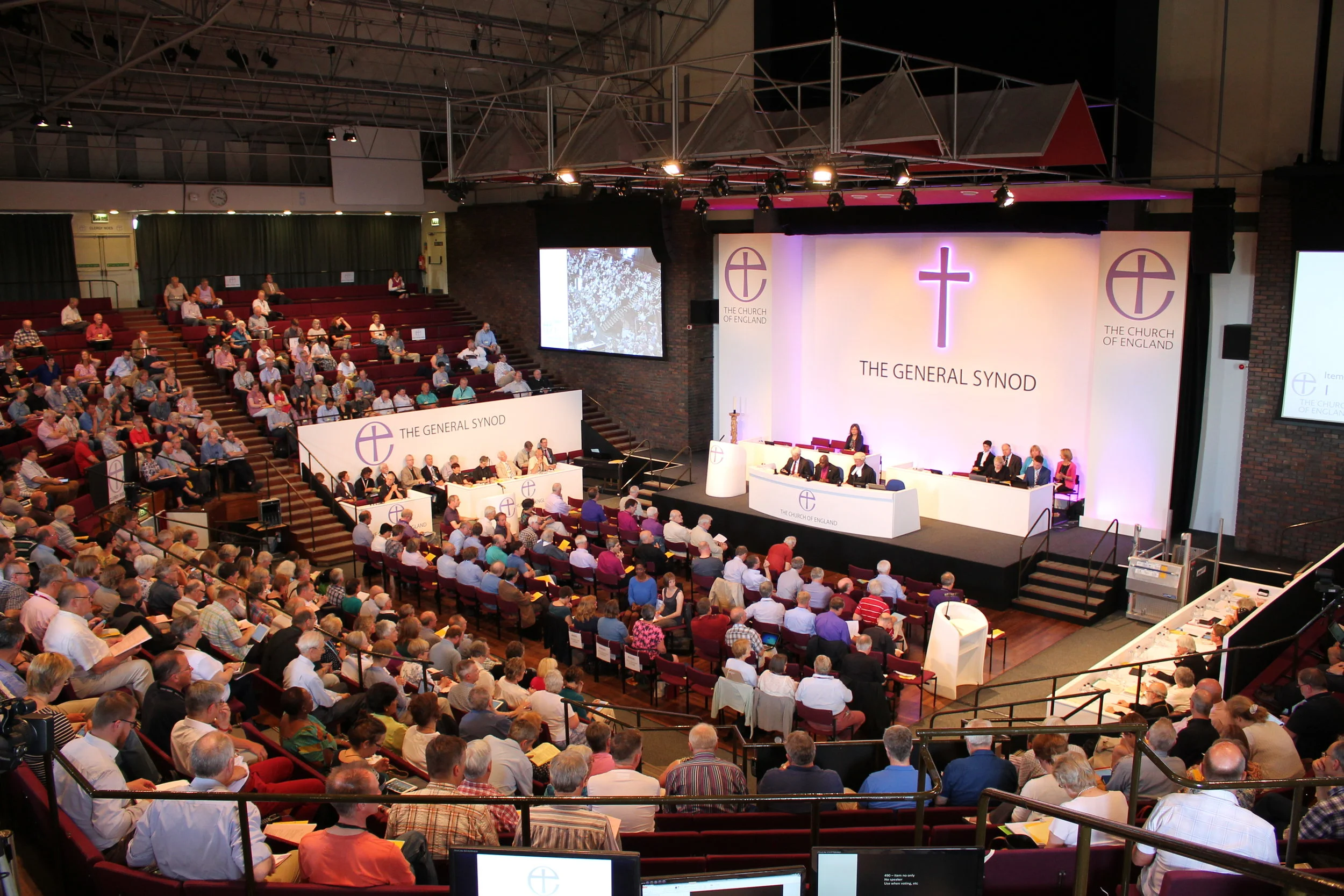Church of England calls for renewed efforts on nuclear disarmament
/Church of England General Synod in session (Photo: Archbishops' Council)
The General Synod of the Church of England has backed a motion calling on the Government to restate its commitment to the principles of nuclear arms control and eventual nuclear disarmament in a debate today at the General Synod.
Members of the General Synod urged the Government to ‘respond positively’ to the UN Treaty on the Prohibition of Nuclear Weapons, by setting out its strategy for meeting its obligations under Article VI of the Nuclear Non-Proliferation Treaty.
The Bishop of Chelmsford, Stephen Cottrell, told the General Synod that the motion was not about a ‘binary choice’ between unilateral or multilateral approaches but sought instead to give fresh impetus to the debate about nuclear disarmament.
“What we are voting for this evening is a new national debate about the retention and development of nuclear weapons,” he said.
“We have reached international agreements about other indiscriminate weapons such as chemical weapons and cluster bombs. These agreements are based on established principles in international law around the need for discrimination in conflict – so why can’t we fill the gap in international law and develop plans towards a world without nuclear weapons as well?”
General Synod heard from the Chaplain of the Fleet, Martyn Gough, who paid tribute to the men and women of the Royal Navy who work on the submarines that form the UK’s nuclear deterrent who ‘simply seek to serve God, the Queen and our country.”
“This is a complex and emotional subject, so please as you consider the rights and the wrongs of the nuclear deterrent, remember and pray for the men and women of the Naval Service who have for the past 50 years tried to keep our peace,” he said.
The Bishop of Portsmouth, Christopher Foster, also paid tribute to the ‘tens of thousands of fine young men and women in all the Armed Forces, who put themselves in harm’s way to keep us safe’.
The General Synod welcomed the 2017 UN Treaty on the Prohibition of Nuclear Weapons, and the ‘clear signal’ it sends that nuclear weapons are ‘both dangerous and unnecessary’.
Members also backed work with Anglican Communion and other churches in addressing the reasons why Governments seek to acquire nuclear weapons and to efforts towards achieving a ‘genuine peace’ through their elimination.
The motion has been passed after 122 states voted a year ago to adopt the UN Treaty on the Prohibition of Nuclear Weapons, with the Treaty thought likely to be approved later this year at the United Nations General Assembly.
Under Article VI of the Treaty on the Non-Proliferation of Nuclear Weapons, the five recognised nuclear weapons states are permitted to possess nuclear weapons but only if they commit themselves to the principles of nuclear arms control and eventual disarmament. [C of E News]





















